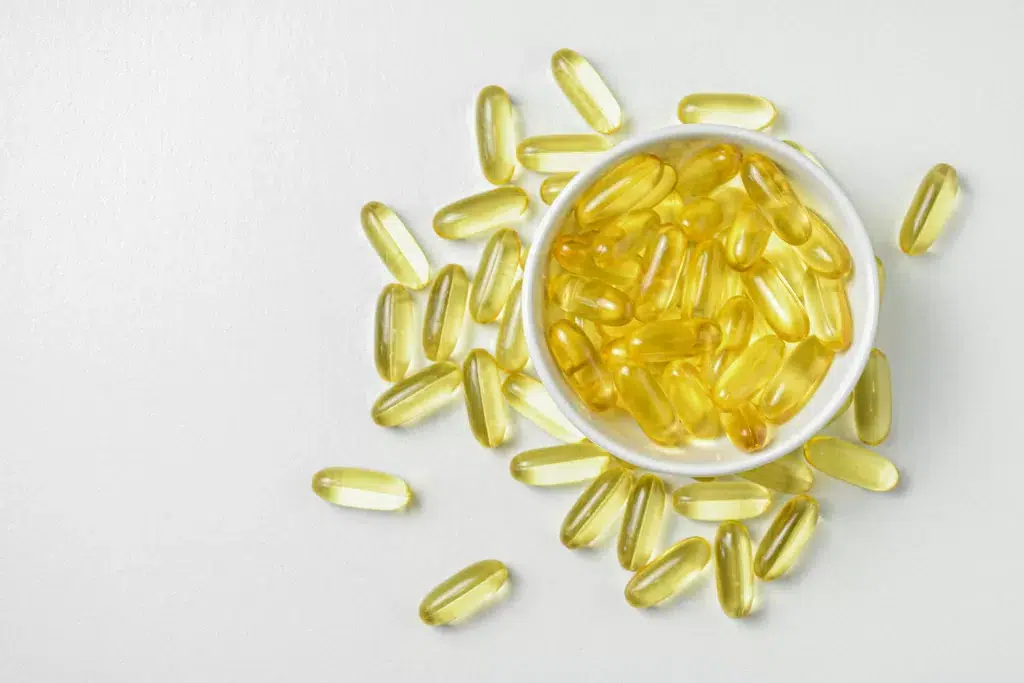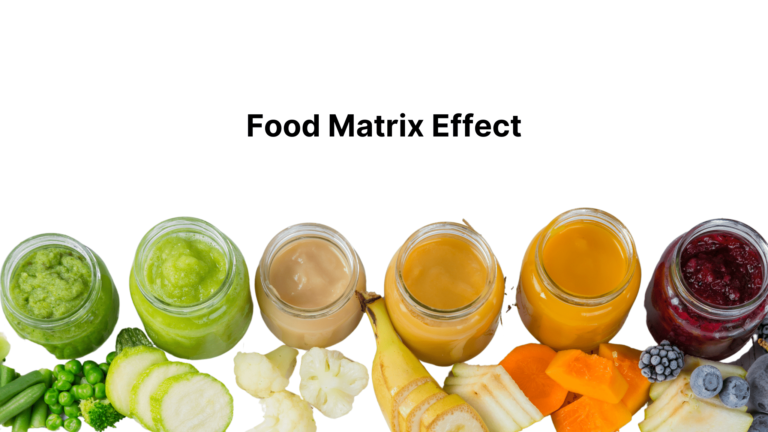Cognitive Health & The Valuable Good of Vitamin E
Cognitive health refers to the ability of an individual to think, learn, and remember information.
Bioactive diets and specific nutrients such as Vitamin E have been found to benefit cognitive health in various ways. For example, improving blood circulation to the brain can enhance cognitive function.
In addition to its antioxidant properties, vitamin E may also help reduce inflammation in the brain, according to some studies. This is particularly important because inflammation is believed to contribute to cognitive impairment.
Vitamin E may help protect brain cells from damage caused by free radicals and reduce inflammation.
Key Points In This Article
This article explores the effects of a bioactive diet, specifically constituents like vitamin E, on cognitive well-being and their influence on neuro-wellness and cognitive vitality.
It also details any available case studies and Ayurvedic principles on cognitive well-being.
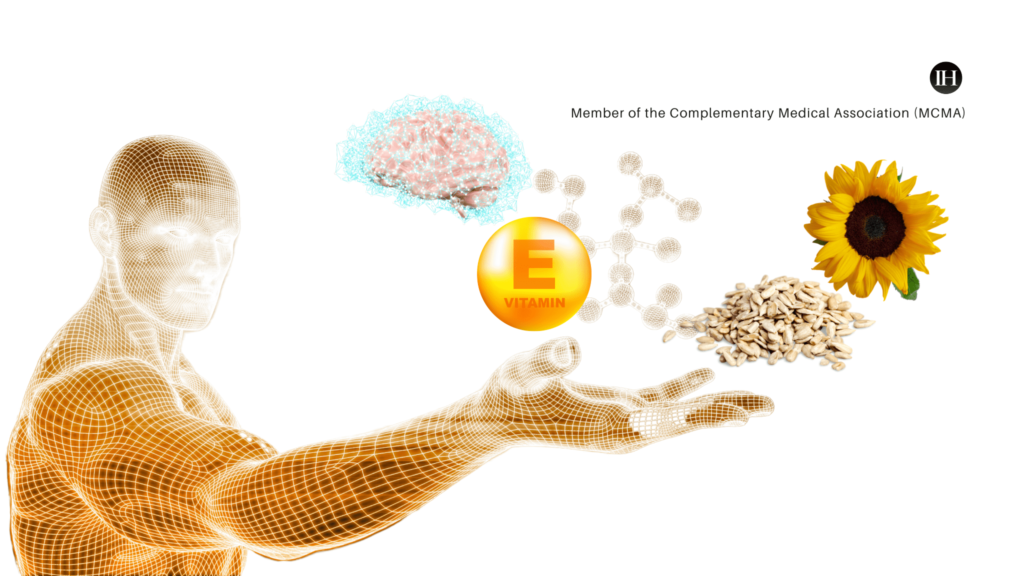
Cognitive Health & The Diet Link
Cognitive health involves a wide range of functions that are essential to our overall well-being.
Our dietary choices play a significant role in shaping our physical and neurological health throughout our lifetime. Present-day science recognises the interplay of the gut-brain axis, which means that the neurological system and diet have an intricate connection.
These factors rely on and influence each other, as well as other systems in our body. Therefore, it becomes crucial to recognise this connection and ensure proper nutrition through diet.
Vitamin E, obtained through a diet rich in foods that are part of a broader food matrix, can be beneficial.
Neurotransmitters Serotonin & Dopamine
The gut is home to trillions of microorganisms, collectively known as the gut microbiota, that help in breaking down food and absorbing nutrients.
These microorganisms also produce neurotransmitters, such as serotonin and dopamine, which are involved in regulating mood and behavior.
Research suggests that imbalances in the gut microbiota can lead to several neurological disorders, including anxiety, depression, and more.
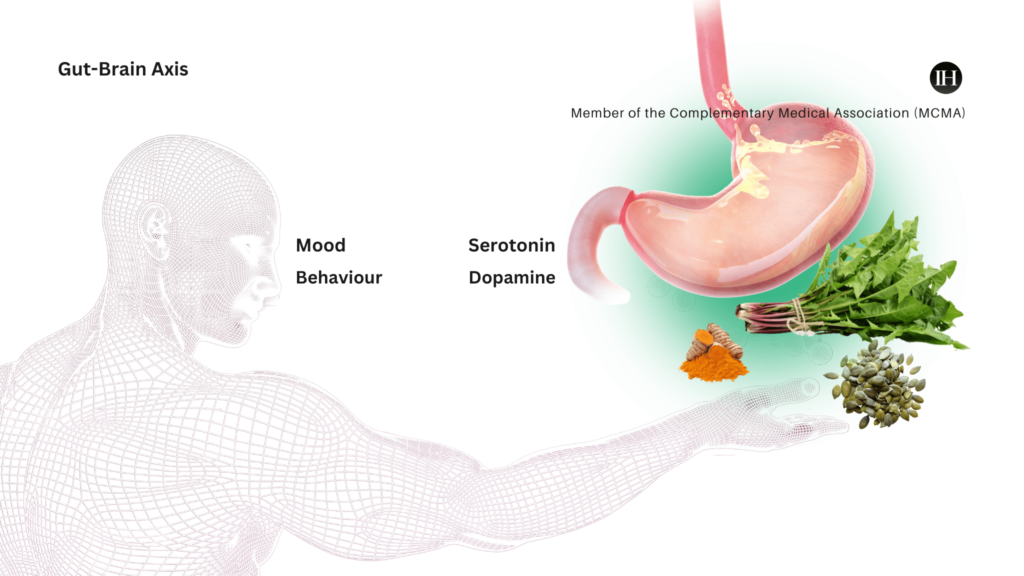
The following section details an overview of cognitive functions, followed by the role of vitamin E in diet.
An Overview Of Cognitive Functions
Here is an overview of healthy cognitive functions, although these may vary in levels:
- Attention: attention refers to the act of focusing one’s mind or directing one’s senses towards a particular stimulus.
- Perception: the process of interpreting or becoming aware of sensory information received from the environment through our senses.
- Language: the function of language means the ability to communicate and understand information through spoken or written words.
- Problem-solving: means the ability to find effective solutions to complex or challenging issues. It requires analytical thinking, creativity, and the willingness to explore different approaches until the best outcome is achieved.
- Decision-making: refers to the process of selecting the best course of action from among two or more alternatives. It involves analyzing different options, evaluating their potential outcomes, and choosing the most appropriate option that aligns with the goals and objectives of the decision-maker.
Relationship Of The Gut-Brain Axis In Cognitive Vitality
Consequently, modern scientific research commonly refers to the connection between healthy cognitive function and diet as the gut-brain axis.
The gut and the brain are interconnected through the autonomic nervous system, the hypothalamic-pituitary-adrenal (HPA) axis, and nerves within the gastrointestinal tract.
This connection allows the brain to influence intestinal activities, including the activity of functional immune effector cells, while the gut can influence mood, cognition, and mental health (Appleton, 2018).
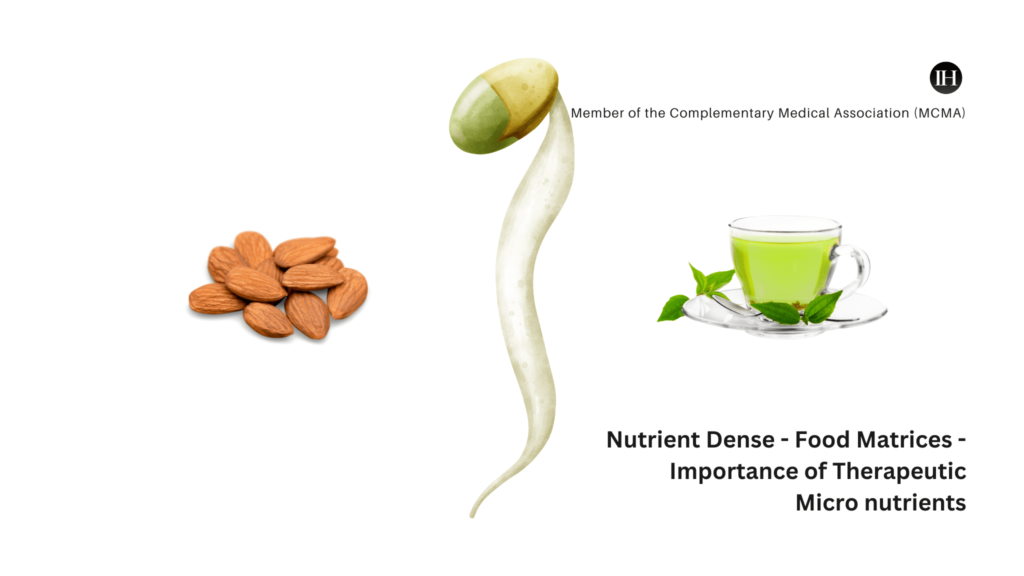
The Gastrointestinal System Link In Mood, Anxiety, & Other Functions
According to (Appleton, 2018), there are established links between several mood disorders, such as anxiety, depression, and autism spectrum disorders, and functional disruptions in the gastrointestinal (GI) system.
Recent research has shown that the composition of gut bacteria plays a vital role in fetal and neonatal neurologic development. Additionally, our diet has been found to impact the gut microbiome’s effect on cognitive function.
Consuming A Bioactive Diet For Cognitive Vitality
A bioactive diet is composed of natural components that are essential for our physical and neurological health rather than synthetic or artificially modelled sources.
These diets are beneficial because they come from natural sources and provide various nutrients and properties, such as organic and whole foods.
Nutrient Dense, Away From The Isolated Approach Of Energy Dense
This concept is also associated with a shift from an energy-dense to a nutrient-dense diet.
Bioactive diets contain essential nutrients and natural biological constituents, also known as phytochemicals.
Below is a list of nutrient and compound categories found in natural foods:
- Phytoactive constituents
- Phenolic acids
- Antioxidants
- Probiotic & prebiotics
- Natural macro and micronutrients
Bioactive diets have a synergistic interplay with the body that provides high-quality nourishment and helps maintain good health.
This diet is considered therapeutic and nutritious due to its whole energy sources and health benefits.
Several studies recognize the counterproductive and long-term effects of synthetic diets that involve ultra-processed foods, non-organic sources, and cooking methods.
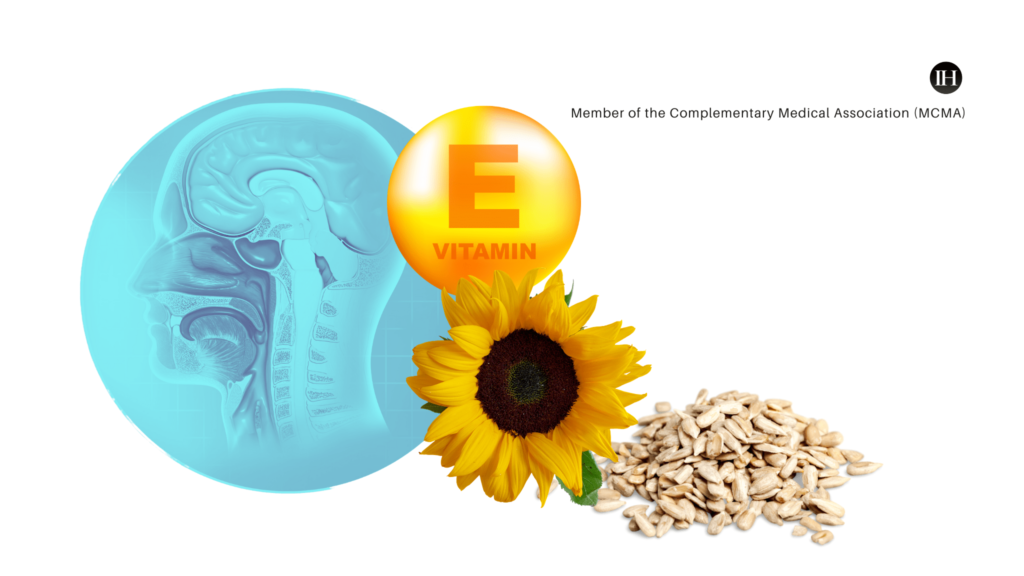
Modern Day Malnutrition & Cognitive Decline
Malnutrition is a problem that arises when a person’s diet fails to provide the necessary nutrients required for proper growth, development, and maintenance of their body.
This is the opposite of correct nutrition and is a serious byproduct of improper diet.
Consuming high-sugar diets and ultra-processed foods can deplete the body as they are nutrient-poor and heavily processed. Unsurprisingly, traditional sciences form a strong feedback loop for contemporary institutes.
For example, the World Health Organization (WHO) highlights that following a healthy diet throughout life can prevent malnutrition in all its forms and various non-communicable diseases (NCDs) and conditions (Healthy eating: applying All Our Health).
Recognition & Role of Gut-Brain Axis
The previous section briefly outlined the connection between the gut-brain axis and cognitive health. Numerous studies indicate that the gut produces about 95% of the body’s serotonin.
As a neurotransmitter, serotonin is crucial in regulating mood, appetite, and sleep.
The following section provides a more detailed discussion on these neurotransmitters.
Serotonin
Serotonin acts as a neurotransmitter and as a hormone.
The gut produces serotonin (a chemical produced by the gut), which travels through the bloodstream to the brain and interacts with serotonin receptors on neurons.
These receptors exist in various brain regions, including the prefrontal cortex, hippocampus, and amygdala, and they actively regulate mood, memory, and other cognitive processes.
Identification Of The Chain & Link
Serotonin influences cognitive health because it regulates mood. It communicates with the brain through the nervous system.
This affects cognitive functions such as attention, memory, and decision-making.
The serotonin plasma is co-related to the environment of the gut microbiota. Subsequently, the gut mechanism is subject to, behaves and responds according to dietary foods and other factors.
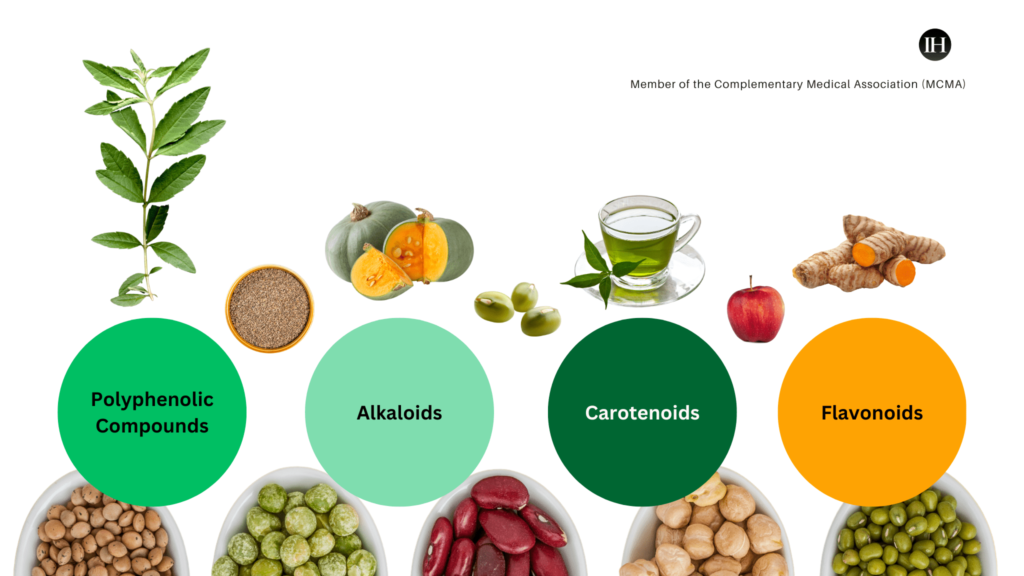
How Food Communicates With The Body
Food communicates with the gut through a complex network of nerves, hormones, and chemical signals.
When food is consumed, it is broken down into smaller molecules in the stomach and small intestine. These molecules then enter the bloodstream and travel to the rest of the body, including the gut.
The gut contains millions of nerve cells, which are able to sense the presence of these molecules and send signals to the brain.
Additionally, the gut produces a variety of hormones and chemical signals that can influence the way the body processes food and regulates appetite.
This communication between the gut and food is crucial for overall health. It can be improved and maintained with regular work through the correct diet.

When Serotonin Is Out Of Balance
Imbalanced levels of serotonin can cause various health issues, including anxiety, depression, obsessive-compulsive disorder, and migraines.
Therefore, it is imperative to maintain an optimal level of serotonin in the body to ensure overall well-being. Several factors, such as diet, genetics, and environmental factors, influence serotonin levels in the body.
When the level of serotonin is too low, it can lead to various negative effects on mood, such as anxiety, depression, and irritability.
It can also affect sleep patterns, appetite, and sexual behaviour. On the other hand, when the level of serotonin is too high, it can result in a condition known as serotonin syndrome, as specified by available studies.
Impact of Ultra Processed Food On The Gut-Brain Axis
Recent studies have shown that consuming ultra-processed diets can have a negative impact on serotonin levels.
These diets are typically high in refined carbohydrates, added sugars, unhealthy fats, and artificial additives, which can disrupt the delicate balance of gut microbiota and subsequently affect serotonin (Link to study UPF).
Example of A Study In Mood Improvement
According to a study by Shabbir F et al., there is clinical and experimental evidence to suggest that a proper diet can help reduce symptoms of depression. The neurotransmitter serotonin (5-HT), which is synthesized in the brain, plays a crucial role in regulating mood, satiety, and sleep.
The study found that consuming a diet rich in tryptophan can help control the synthesis of CNS serotonin, ultimately improving mood.
Tryptophan, Precursor To Serotonin
The report highlights the importance of tryptophan-rich foods and vitamin B(6) in boosting serotonergic neurotransmission to alleviate depression in various neurodegenerative diseases. This study was published in Neurochem Int in February 2013 and has the PMID number 23306210.
Nuts, seeds, legumes, whole grains, and leafy greens are excellent sources of tryptophan and can help naturally boost serotonin levels.
Sunflower seeds are an excellent source of vitamin E and tryptophan, both essential nutrients for physical and neurological well-being.
Diverse neurological disorders demonstrate several common pathophysiological mechanisms including increased oxidative stress, neuroinflammation, and disrupted metabolism. Dietary interventions can potentially influence these pathophysiological processes and thus favorably alter clinical outcomes
Ramírez-Salazar et al. (2021) Current Neurology and Neuroscience Reports/PMID of 34586517
Vitamin E (Tocopherols) Supplementation In Cognitive Functions
The study by Fata, Weber, and Mohajeri aimed to investigate the effects of Vitamin E supplementation on cognitive performance in aging individuals and those with Alzheimer’s disease.
They conducted a systematic review and meta-analysis of randomised controlled trials that examined the relationship between Vitamin E supplementation and cognitive performance.
Key Findings
The study found that Vitamin E supplementation can have a positive effect on cognitive performance in both aging individuals and those with Alzheimer’s disease.
Specifically, the study found that Vitamin E supplementation was associated with improved cognitive performance in several areas, including attention, memory, and verbal fluency.
The authors concluded that Vitamin E supplementation might be a promising strategy for preventing or treating cognitive decline in ageing individuals.
Specific Dose
A total of 57 AD patients (mild, moderate, and severe dementia) were recruited, out of which 33 completed the study.
Vitamin E treatment (800 IU/day for six months) was found to be effective in maintaining cognitive status and even slightly improving it, only if lower blood oxidized glutathione levels were detected.
| Antioxidative | Free radical scavenger | Anti Inflammatory | Neuro Vitality |
Vitamin E Natural Food Sources May Be Better
Similarly, various epidemiological studies have indicated that vitamin E from food sources is more effective in preventing age-related neurodegenerative disorders when compared to dietary supplementation.
This concept is supported by vitamin E from food sources consisting of all four tocopherols and four tocotrienols, which have different properties and possible functions (Fata et al., 2014).
While α-tocopherol is the most abundant and bioavailable form of vitamin E in human tissues, it has been demonstrated that tocotrienols may be more potent radical scavengers than α-tocopherol under specific experimental conditions.

Vitamin E In Sunflower Seeds
One dietary source rich in vitamin E (tocopherols) is the Sunflower.
The seeds have a high nutritional and phytotherapeutic value and are easily integrated into a balanced diet.
Nutritional Value of Sunflower Seeds
The nutritional value of 100 grams of sunflower seeds, and dried kernels, according to the United States Department of Agriculture includes the following amounts;
- Vitamin E Tocopherols – 35. 2 mg
- Tocopherol, beta – 1.18 mg
- Tocopherol, gamma – 0.37 mg
- Tocopherol, delta – 0.02 mg
- Tryptophan – 0.348 g
Ayurvedic Overview of Eating For Cognitive Health
Ayurveda prioritizes cognitive health in dietary habits.
The practice takes a preventive and nourishing approach to diet and often considers the therapeutic actions of natural foods to be medicinal.
Ayurvedic diets rely on the elemental factors of Vata, Pitta, and Kapha as critical tools for dietary evaluation.
In particular, polyherbal combinations called Medhya Rasayana are used in combined preparations or alone for cognitive performance enhancement.
Also, chronic stress, without proper personal management, is a factor that contributes to the inflammatory response according to Ayurveda.
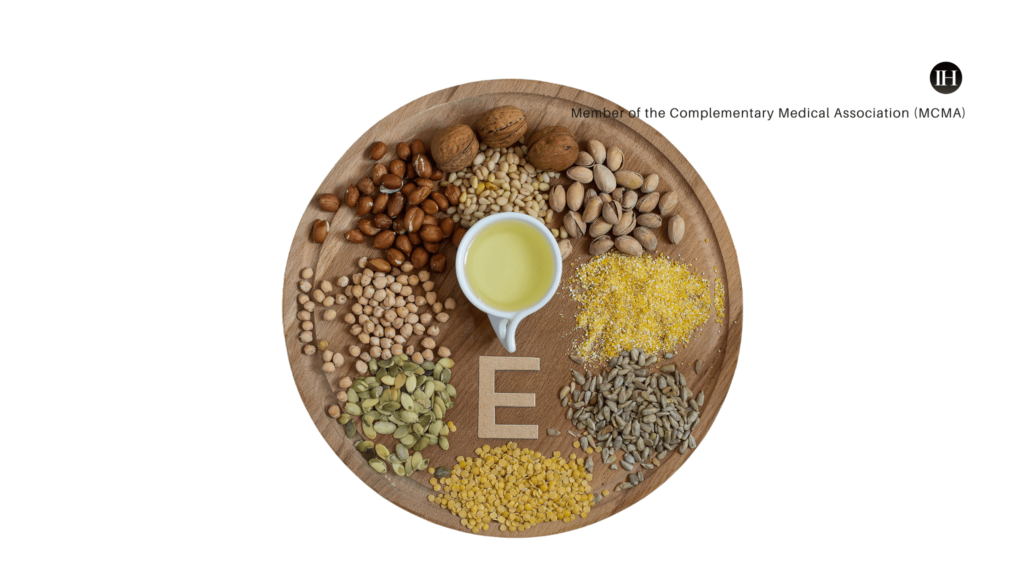
Summary
Incorporating bioactive diets into your daily routine can help you maintain optimal cognitive health.
These diets are loaded with essential dietary components and phytochemical compounds that offer interconnected benefits for overall well-being.
For example, bioactive diets contain vitamin E, a potent antioxidant that safeguards brain cells against oxidative damage, a leading cause of cognitive decline.
In addition, such dietary choices can lower the risk of chronic diseases and enhance immune function. Hence, including bioactive diets in your daily routine can have a positive impact on cognitive health and overall well-being.
Suitability & Precautions
The suitability of dietary recommendations depends on individual factors. Precautions and personal responsibility are crucial. Check suitability if pregnant or individuals with chronic health concerns and allergies, and seek the advice of a professional.
This post is for informational purposes only and does not constitute professional advice.
References in this article:
Ramírez-Salazar, Sergio A et al. “Dietary Insights in Neurological Diseases.” Current neurology and neuroscience reports vol. 21,10 55. 29 Sep. 2021, doi:10.1007/s11910-021-01143-w
Appleton J. The Gut-Brain Axis: Influence of Microbiota on Mood and Mental Health. Integr Med (Encinitas). 2018 Aug;17(4):28-32. PMID: 31043907; PMCID: PMC6469458.
https://fdc.nal.usda.gov/fdc-app.html#/food-details/168594/nutrients
Hecht EM, Rabil A, Martinez Steele E, Abrams GA, Ware D, Landy DC, Hennekens CH. Cross-sectional examination of ultra-processed food consumption and adverse mental health symptoms. Public Health Nutr. 2022 Nov;25(11):3225-3234. doi: 10.1017/S1368980022001586. Epub 2022 Jul 28. PMID: 35899785; PMCID: PMC9991859.
Shabbir, Faisal et al. “Effect of diet on serotonergic neurotransmission in depression.” Neurochemistry international vol. 62,3 (2013): 324-9. doi:10.1016/j.neuint.2012.12.014
Lane MM, Gamage E, Travica N, Dissanayaka T, Ashtree DN, Gauci S, Lotfaliany M, O’Neil A, Jacka FN, Marx W. Ultra-Processed Food Consumption and Mental Health: A Systematic Review and Meta-Analysis of Observational Studies. Nutrients. 2022 Jun 21;14(13):2568. doi: 10.3390/nu14132568. PMID: 35807749; PMCID: PMC9268228.
Troesch B, Biesalski HK, Bos R, Buskens E, Calder PC, Saris WH, Spieldenner J, Verkade HJ, Weber P, Eggersdorfer M. Increased Intake of Foods with High Nutrient Density Can Help to Break the Intergenerational Cycle of Malnutrition and Obesity. Nutrients. 2015 Jul 21;7(7):6016-37. doi: 10.3390/nu7075266. PMID: 26197337; PMCID: PMC4517043.


